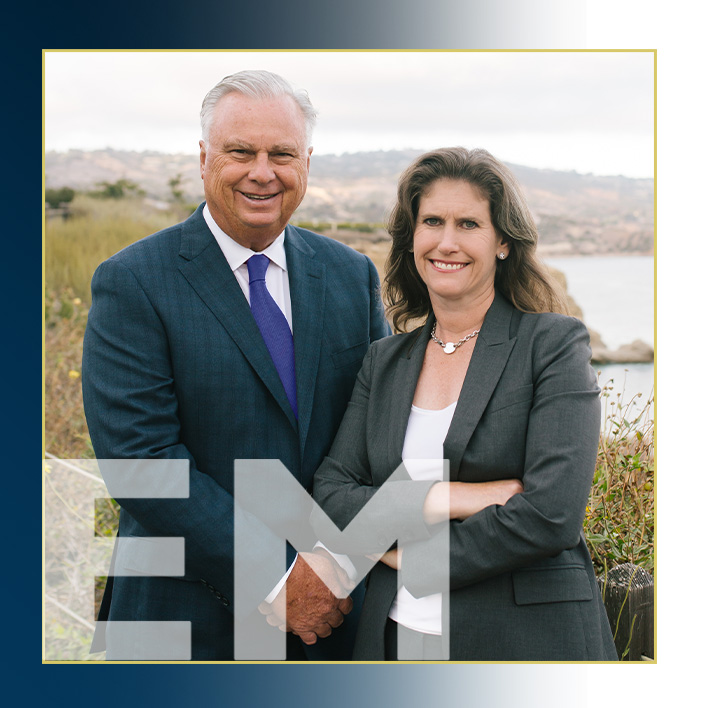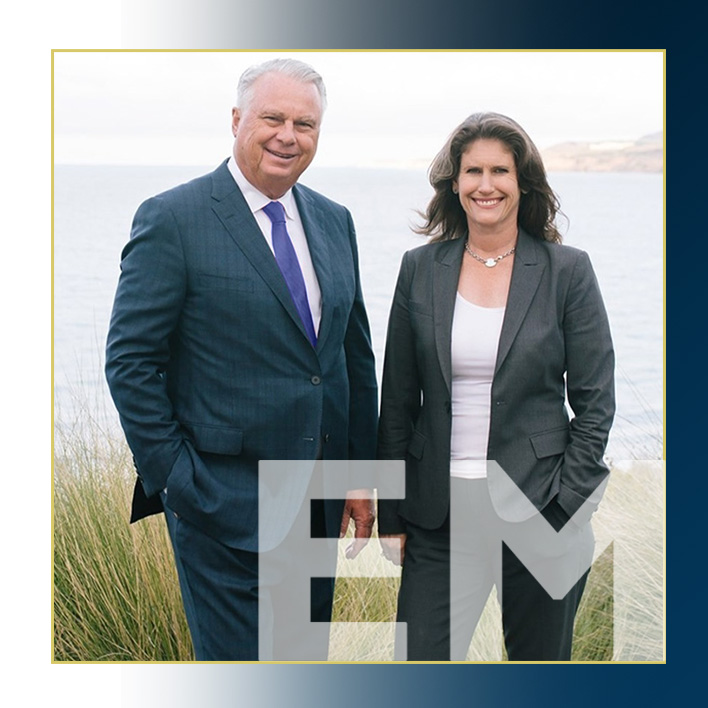
Ernenwein & Mathes, LLP: Your Torrance, CA Juvenile Crimes Attorneys
For decades, our lawyers have provided aggressive representation for clients facing criminal allegations. At Ernenwein & Mathes, LLP, we believe that your child deserves to combat the allegation they face and force the prosecution to prove that their evidence is factual. Robert Ernenwein is a former Los Angeles deputy district attorney, and he will provide a unique perspective for your child’s criminal defense strategy. We are prepared to identify and explore the best possible outcomes, and we will defend your child against their criminal allegation as if they were our own.
Over our years in business, we have represented many young people. We understand that kids make mistakes sometimes. We also understand that kids can be cruel and often blame each other to avoid being punished themselves. No matter your child’s situation, we are here to provide empathetic, judgment-free legal advice that can help your child move forward from this unfortunate part of their lives.
Kids already grow up too quickly, and facing legal punishment will only accelerate this process. Rely on one of our criminal defense lawyers to help protect your child’s innocence and preserve their prospects for the future.

What Is a Juvenile Crime?
A juvenile crime is an offense that has been committed by a person who is under a certain age. In most states, including California, the offender must be 17 or younger to be tried in the juvenile court system rather than the adult one.
Most juvenile cases are considered minor infractions. Only 6-7% of juvenile cases involve serious offenses like rape, murder, assault, robbery, etc.
Despite the nature of these cases, the punishments can still be severe. A person charged with a crime in a juvenile court may face consequences years later. Their punishments may prevent them from getting into a good college, finding a job, acquiring independent housing, and more. It is always best to hire an attorney for juvenile crime cases.

-
I cannot thank Robert enough for his efforts, knowledge, and execution in my case. He gave me a second chance.- Kevin Q.
-
Michelle has had a profound impact on my life. She not only has a firm grasp of legal matters, but also of human emotions. This dynamic duo worked all hours of the day and night on my case. They exerted effort way beyond the amount that I had paid them.- Khadijeh K.
-
If you are in need of a great attorney with an abundance of experience as well as a very professional office staff who constantly will keep you updated, call Ernenwein & Mathes!- Jake L.
-
They are the gold standard for defense attorneys. A+- Former Client
Status Offenses
Status offenses are a category of crime that is unique to the juvenile justice system. These crimes are all actions that would not be considered criminal if the child were an adult. The child’s age is the deciding factor that turns their actions from a harmless or common activity into a crime.
Some examples of status offenses include:
- Consuming alcohol, marijuana, or tobacco underage
- Truancy
- Running away
- Breaking a city or county curfew time
- Being beyond their parent’s control (ungovernability)
All these actions are only illegal if a minor or a person under a certain age commits them. If a 25-year-old person were to do any of the above actions, they would not be committing a crime.
Types of Juvenile Offenses in California
There are many different kinds of juvenile offenses. In fact, almost any crime can be considered a juvenile offense if it has been committed by someone who is 17 or younger. However, most juvenile offenses are status offenses or small delinquencies.
Despite the broad range of crimes in the juvenile court system, there are some offenses that are especially common for adolescents and children.
Theft
Theft is one of the most common juvenile crimes. Children often feel pressure from their peers to steal, especially if they do not have an allowance or job to afford the things that they may want. Some children just want to see what shoplifting or stealing will feel like, as it is common for young people to experiment.
Although the court does not accept age as an excuse for committing a crime, it does understand that theft in children is not necessarily an indication of an ongoing personality trait or bad streak. However, it is important that you make sure that your child’s perspective is heard in court, especially if they were coerced or pressured into committing theft.
Vandalism
Adolescents often commit vandalism to connect with friends and send a message. For this reason, it is an offense that is commonly seen in the juvenile court system. If your child is facing vandalism charges, it is important that other parties involved in the offense, such as friends or classmates, are also held responsible. To achieve the minimum punishment or to have the petition against your child dropped, you need to find an attorney to represent your family.
Assault
When kids reach a certain age, it is common for disagreements to break out among peers. In some situations, these disagreements escalate to physical altercations. In others, one adolescent may bully another adolescent based on a number of factors. Adolescents may also form gangs to feel a sense of belonging and to feel protected from others. All of these scenarios can lead to assault charges.
Assault is a serious offense, and it is one that is common in general court hearings as well as juvenile ones. If your child is accused of assaulting another person, it is imperative that you have an attorney represent you.
Ensure the Protection Of Your Child’s Future
It is in your child’s best interest for you to consult a criminal defense lawyer who can walk you through the juvenile justice system and figure out the best possible disposition for your child. A plea deal may seem like the easy way out, but it can have long-term effects on your child’s future.
California has a three-strikes law, and a juvenile conviction can result in the first strike, depending on the age of your child at the time the offense was committed. Just one strike on a criminal record can result in more severe consequences. It is important to understand how juvenile court works and find alternative charges or dispositions or avoid lifelong consequences. Protect your child from the negative long-term effects by preparing them with an aggressive criminal defense.
Juvenile Court Distinctions
Although juvenile court ensures that children are held responsible for their actions just as adults are, there are many distinctions between a juvenile court process and a standard court process. It is important to understand these differences as you navigate your child’s case.
Children and adolescents have the same right to an attorney in court as adults do. However, they do not have the same right to a jury of their peers. Instead, the case is heard by a single judge who can resolve the issue. Usually, these resolutions are fairly informal and are meant to teach a lesson or offer reparations rather than punish the juvenile individual.
Although the consequences of juvenile crimes can affect a child’s future, the court has options for punishment in juvenile cases that are uncommon or unavailable in adult cases. The courts often use curfews, house arrest, counseling, and probation as punishments for juvenile crimes, whereas these tactics are not as common with adults.
Adolescents in Adult Court
In some situations, a juvenile can be tried in a regular courtroom. This is called a waiver. In the standard courtroom, the child is subject to the same standards and punishments as adults are, despite their age.
Waivers usually happen when a child has committed several previous offenses or the offense was particularly gruesome. If a child or adolescent is accused of rape, murder, or other similar offenses, the court may try them in a standard setting. This results in more severe consequences, stricter rules, and more difficult litigation. In these situations, it is imperative that you have an attorney to represent your family. Your child and family could face lifelong consequences if you do not hire a lawyer.
California Juvenile Justice System
The original purpose of juvenile court law was parental and rehabilitative in nature and motivated by a desire to ensure the mental, physical and emotional welfare of the minor. However, in recent years, the countervailing interest of “protection of the public” has become equally ingrained in the juvenile court system. Although studies and research have shown that children and teenagers are not yet developmentally equipped to make decisions as well as adults, more and more children are being incarcerated at younger ages. Many of them are being tried as adults.
What Is Juvenile Court?
Juvenile court, which is part of superior court, deals with three types of cases:
Juvenile status offenses involve children that commit offenses that are only illegal because they are committed by children. Examples include skipping school (truancy), underage alcohol consumption and running away from home.
Juvenile delinquency cases involve children under the age of 18 alleged to have committed a delinquent act (which would be a crime if committed by an adult) or who are habitually disobedient, truant or beyond the control of a parent. Delinquency proceedings are heard either in stand-alone delinquency facilities or in local court districts. Typical juvenile offenses range from simple possession of marijuana to felony assault to felony sexual abuse, although our juvenile cases have run the gamut through virtually every type of offense.
Juvenile dependency cases involve cases of children who have been or are at risk of being seriously abused, neglected or abandoned. Unlike juvenile status offenses and juvenile delinquency cases, where the child is the target of prosecution, juvenile dependency cases require the juvenile court are tasked with protecting children from a home where the abuse or neglect is alleged to be taking place.
Contact Our Aggressive Torrance Juvenile Lawyers Today
Our juvenile defense lawyers at Ernenwein & Mathes, LLP, will fight for your child’s innocence as if they were their own. Mr. Ernenwein is aware of how the prosecution operates, and we use this knowledge to prepare a creative defense strategy for your child’s best possible resolution.
Contact our Torrance office for your free consultation by calling (310) 361-3068, or you can complete this online contact form.
FAQs About Torrance, CA Juvenile Laws
-
My Child Has Been Taken Into Custody. What Can He/She Be Charged With?
Depending on the seriousness of the charged offense, the prosecutor can file either misdemeanor or felony charges. If a minor is convicted of a misdemeanor, he will be placed on probation, detained in a juvenile facility, such as a boot camp or a ranch, ordered to pay a fine or a combination of these punishments. If the minor is convicted of an infraction, such as a motor vehicle violation, he or she will usually be punished with a fine.
However, the minor will face much more severe consequences if he is convicted of a felony. The court may sentence to incarceration in a state institution, such as the Division of Juvenile Justice (DJJ), which is the equivalent to a state prison sentence for adults. In addition to or in the alternative, the court may order house arrest (electronic monitoring), commitment in a youth center, probation, parole or undergoing treatment programs.
There are rules and procedures that are unique to the California Juvenile Court and, therefore, make it very different from adult criminal court. For instance, juveniles are not entitled to jury trials (the theory being that, since juveniles are being rehabilitated rather than punished, they are not entitled to all protections otherwise afforded adult criminals). Juveniles also have no right to bail.
-
If My Child Is Convicted, Will The Conviction Remain On His Criminal Record?
If you hire us, we will try to get your child’s case deviated out of the criminal justice system through deferred entry of judgement or to seek informal probation with dismissal or a dismissal after formal probation. If we can secure these as conviction/sentencing options, the offense will not go on his or her criminal record. If a plea of no contest or conviction occurs in a case, the record can be sealed after the juvenile’s 18th or 21st birthday.
-
What Kind Of Punishment Will My Child Received If She Or He Is Convicted?
Generally, punishments fall into four different categories. First, your child may be sent home on probation. Second, the juvenile may be sent to a placement facility within the community, such as a boys’ or girls’ home. Third, the juvenile may be sent to a camp facility. The camp may be a short-term camp and last as little as four months or as long as 12 months. Finally, your child may be sent to DJJ, which is a juvenile version of an adult state penitentiary.
-
Should I Hire A Torrance Juvenile Attorney For My Child?
Absolutely.
The right counsel can help you avoid pitfalls that may arise in the case, such as the juvenile court’s determination that the case is serious enough (i.e., felony) to justify your child being charged and tried as an adult. If your child is tried as an adult, his or her case is moved to adult criminal court, and if convicted, may go to prison with adult offenders.
The defense lawyers at Ernenwein & Mathes, LLP, have handled over 1,000 juvenile cases over the course of their combined 60 years of experience. We will make every possible effort to allow your child to remain in juvenile court. We can attend your child’s fitness hearing, where the court makes the decision regarding whether to try your child as an adult or a juvenile. Psychiatric reports, probation reports and legal arguments can be arranged to help convince the juvenile court to retain its jurisdiction over the minor.
As Robert Ernenwein is a former Los Angeles deputy district attorney, the lawyers at Ernenwein & Mathes, LLP, know the criminal process inside out, giving them a distinct edge when they represent you in court. They are well-respected and well-known by Los Angeles prosecutors and judges.
If your child has been charged in a criminal case, contact Ernenwein & Mathes, LLP, Los Angeles and Orange County criminal defense lawyers today at (310) 361-3068 for a free case review.


-
Our Areas of PracticeOur firm is dedicated to criminal defense. See how we can help!
-
Dedicated to Your DefenseGet to know our defense law firm and see how we can help!
-
Request a ConsultationReach out today to speak with a member of our team.